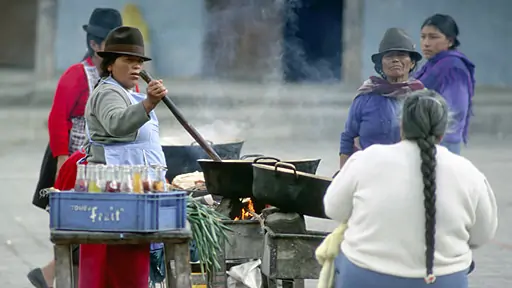Indigenous Calendar January, 2016: Economies of Scale

It is difficult to know which are more complex — economies or theories about them. Two things are certain: the global economy is very complex and no existing theory can predict it.
The global economy has been the subject of a lot of news and speculation in the past year. But the stock markets that reflect its health have been insipid; gains in any sector were offset by losses in other sectors. Probably the biggest global, economic news last year was the small increase in the interest rate announced by the United States Federal Reserve.
Many regions of the world have some form of mutual economic trade agreement. In North America it is the North American Free Trade Agreement (NAFTA). Some have a regional association that might include economic, political and diplomatic cooperation, for example the Association of Southeast Asian Nations (ASEAN). Then there are organizations whose members are associated through principles of oligopoly — the best example being the Organization of the Petroleum Exporting Countries (OPEC).
While most of us are affected by the ups and downs of the global economy there are many isolated communities that are as immune as can be because they have their own, informal economic trade agreement. Many of them are communities of indigenous people. One of them lies isolated in the high Ecuadorean Andes. It is a Quichua community where I based myself a few years ago. A village of only a few hundred people, it sees very few non-Quichua visitors — especially non-Ecuadorean ones. My presence made me something of a curiosity to the inhabitants who, perhaps, thought me a little crazy to be spending the whole day sitting around with my camera.
Due to its latitude (close to the Equator), the climate and the length of the day remain much the same all year round. This makes for a predictable daily routine and on my second afternoon I noticed the same women setting up their food stalls in the village square. The previous evening they'd had so few customers that a restaurant in our society would go out of business in a matter of weeks. But they do not go out of business because their "corporate budget" has no marketing component, no customer relations component, no rental space overhead and no salaries or benefits to pay.
They are an informal example of a Local Exchange Trading System (LETS). That tern was coined in 1983 to describe communities operating outside the global economy. According to the International LETS Groups Directory there are over 1,500 LETS operating in the world today. But if we include informal ones such as these Quichua women, there are millions. They are as inartificial as an economy can be. Perhaps as the global economy continues to worsen, local economies like these will become more commonplace.
If you enjoyed reading this article, please consider supporting independent, advertising-free journalism by buying us a coffee to help us cover the cost of hosting our web site. Please click on the link or scan the QR code. Thanks!


